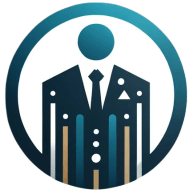In the fast-paced world of business, an executive coach can be a game-changer. They can help you refine your skills, overcome challenges, and reach your professional goals. However, choosing the right executive coach is crucial. This blog post will guide you through the process, ensuring you make an informed decision that aligns with your specific needs.
Understanding the Role of an Executive Coach
An executive coach is a qualified professional who works with individuals to help them gain self-awareness, clarify goals, achieve their development objectives, unlock their potential, and act as a sounding board. They are not consultants or therapists, and they usually don't give advice or solve their clients' problems. They ask questions and help their clients find their own solutions.
Executive coaches work with their clients to provide feedback and perspective. The clients then use this insight to hone their skills and approach. The coach-client relationship is a creative partnership focused on accelerating the client's success. This understanding of the role of an executive coach is the first step in choosing the right one for your needs.
Identifying Your Coaching Needs
Before you start looking for a coach, it's essential to identify what you want to achieve from the coaching relationship. Are you looking to improve your leadership skills, manage stress, increase productivity, or transition into a new role? Your goals will guide your choice of coach.
Once you've identified your goals, consider the characteristics and skills you'd like your coach to have. Some people might prefer a coach who is direct and challenging, while others might prefer someone who is supportive and encouraging. It's also worth considering the coach's background. Some coaches have a background in psychology, others in business. The right fit will depend on your personal preferences and professional goals.
Researching Potential Coaches
Once you've identified your needs, it's time to start researching potential coaches. Start by looking at their qualifications and experience. Coaches should have a coaching certification from a recognized coaching organization such as the International Coach Federation (ICF). They should also have experience coaching individuals with similar goals to yours.
In addition to qualifications and experience, look at the coach's approach to coaching. Do they use a specific coaching model or methodology? Do they focus on certain areas, such as leadership or personal development? Understanding a coach's approach can give you insight into how they can help you achieve your goals.
Conducting Interviews
Once you've narrowed down your list of potential coaches, it's time to conduct interviews. This is your opportunity to get a feel for how the coach operates and whether you could work well together. Prepare some questions to ask during the interview. You might want to ask about their coaching style, their experience with similar clients, and what kind of results their clients typically achieve.
During the interview, pay attention to how the coach communicates. Do they listen well? Do they ask insightful questions? Do they seem genuinely interested in helping you achieve your goals? Your instincts can play a big role in choosing the right coach.
Making the Decision
After conducting interviews, it's time to make your decision. Consider all the information you've gathered. Which coach's qualifications and experience most closely match your needs? Who did you feel most comfortable with during the interview? Who do you believe will help you achieve your goals?
Remember, coaching is a significant investment of time and money, so it's important to choose a coach who you believe will provide value. Don't rush the decision. Take the time you need to consider all your options.
Establishing a Coaching Agreement
Once you've chosen a coach, the next step is to establish a coaching agreement. This agreement should outline the expectations for the coaching relationship, including the goals, the schedule, the confidentiality agreement, and the fee structure. It's important to have a clear agreement in place to ensure both you and your coach understand what is expected.
The coaching agreement is also a good time to discuss how you and your coach will measure success. How will you know if the coaching is working? What will success look like? Having a clear idea of what you're working towards can help keep you motivated and focused throughout the coaching process.
Wrapping Up: Choosing Your Ideal Executive Coach
Choosing the right executive coach is a personal and important decision. It requires self-reflection, research, and careful consideration. By understanding the role of an executive coach, identifying your coaching needs, researching potential coaches, conducting interviews, making your decision, and establishing a coaching agreement, you can ensure that you choose the perfect executive coach for your specific needs. Remember, the right coach can be a powerful catalyst for professional growth and success.

